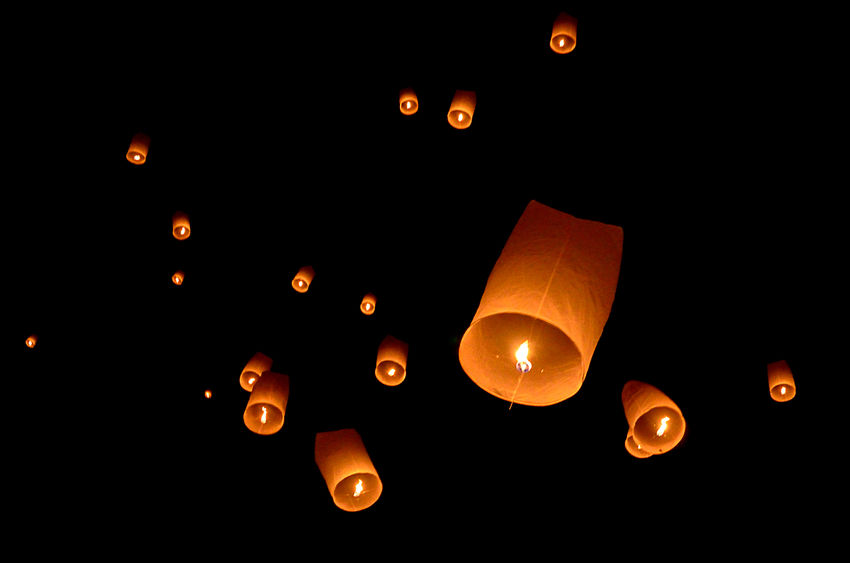
A ten-year-old girl has created a petition calling for the ban on the sale and use of Chinese sky lanterns, due to her concern over the danger they pose to farmers' crops and livestock.
Lexie Stephenson says her concern lies with the dangers sky lanterns bring to farmers crops, animals and buildings.
Her petition now has over 1,400 supporters, and its popularity has led Lexie to be interviewed by national media, including the BBC and ITV.
Her petition reads: “I have started this petition to ban the sale and use of Floating Chinese Lanterns, because I love nature and I believe that they are a hazard to wildlife, farmyard animals and many other things like camping activities, outbuildings and sheds, thatched houses, hedges, fields and any other flammable materials.
“There is evidence online of the devastation caused in the West Midlands to a plastic recycling company which required 200+ firefighters and 39 fire engines to bring it under control.
“The lanterns as beautiful as they are; float through the sky with no control where they may land. They can set things on fire very easily and can cause really bad injuries to animals with the wire or bamboo frames getting tangled up.
“I live in Gloucestershire and have written to both Tewkesbury Borough Council and Gloucestershire Fire and Rescue Service. They have both replied to me and have given full support and back this campaign.
“If we do nothing about these dangerous lanterns we will see a lot more harm come to animals and our countryside.”
'Very serious risk'
NFU chief land management adviser Sam Durham said sky lanterns pose a 'very serious risk' to livestock.
“The NFU continues to encourage councils to ban the lanterns in order to ensure that farmers are able to continue their work without worrying about additional, unnecessary dangers,” Mr Durham said.
“It's important to point out that it's not just farm animals which can be affected. Sky lanterns can cause fires to crops, grassland on moors and bales of hay and straw that have been stacked, which could lead to a loss of buildings.
“The NFU has already seen some councils ban the use of sky lanterns and we would encourage more to follow suit.”
NFU Scotland President Andrew McCornick said councils who have yet to take action need to move forward to make the countryside a "safer place for animals and people.”
He said: “Sky lanterns are seemingly innocent devices, and are beautiful to look at, but they can cause untold damage as there is no control over where these burning structures of paper, metal and wood decide to land.
“Across the UK, there have been many reports now of fires started by lanterns and harm to the health of livestock when lanterns have landed in farmers’ fields and been eaten. There is a further risk to stock when grass is cut and ensiled for winter feed, and the wire is chopped up and subsequently contained in hay or silage.
“We applaud the action already taken against sky lanterns by seven Scottish local authorities and we urge other councils to take their responsibilities as seriously. We also ask members of the public to avoid the use of lanterns and to understand the risks that these can pose.”
'A mass landing of 28 sky lanterns'
Beef and arable farming couple Tony and Sue Robinson from Coolham, West Sussex experienced a mass landing of 28 sky lanterns on their farm in 2013 and are urging people not to release them.
They believe they were lucky to escape a fire, given many sky lanterns had landed alight, scorching the ground around them.
Sue Robinson said: “All we want is for people to be aware of what could happen and we hope we will dissuade people from releasing sky lanterns. If this had happened three weeks earlier, during the dry weather, we could have had a major fire here as many lanterns landed in fields that were earlier growing corn.
“By the burn marks, many were still alight on landing. One landed yards from our supplies of winter straw and feed for the cattle.”
